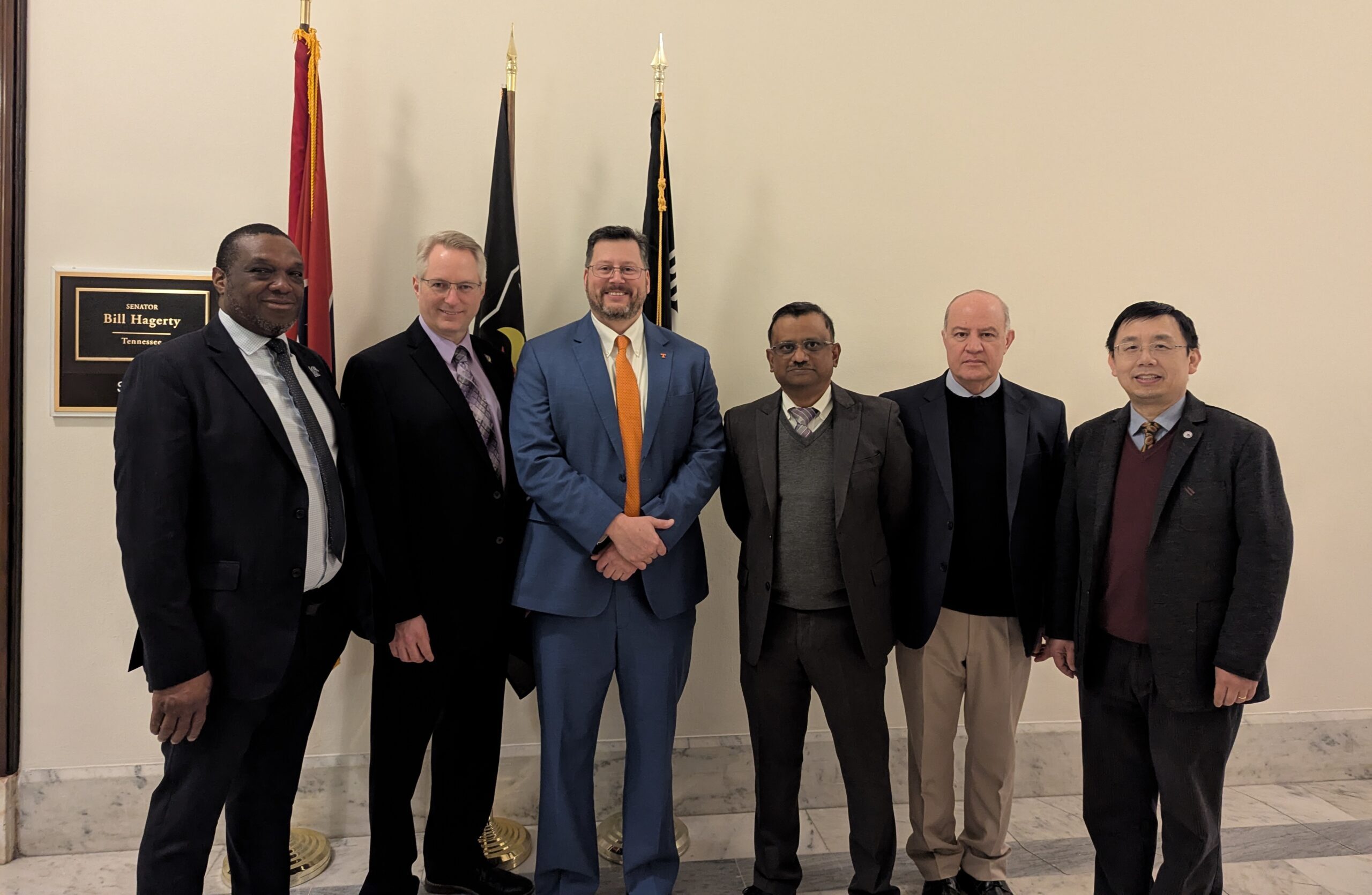As the demand for cutting-edge technology and a highly skilled engineering workforce grows, sustained federal investment in engineering research and education is more important than ever. “At Vanderbilt School of Engineering alone, we currently have almost 700 students and trainees—the future of America’s workforce—who are making transformative impact to science and society as a result of sustained federal funding,” said Bruce and Bridgitt Evans Dean of Engineering Krish Roy.
Federal funding drives new knowledge creation and breakthrough innovations that power the economy and strengthen national security and equips the next generation of engineering leaders with the skills and vision needed to tackle society’s most pressing challenges.

Engineering leaders advocate on Capitol Hill
Roy traveled to Washington, D.C. in February to join colleagues from Tennessee State University, the University of Tennessee-Knoxville, the University of Tennessee-Chattanooga, the University of Memphis and Tennessee Technological University for the American Society for Engineering Education Hill Day. Roy met with Tennessee lawmakers to advocate for increased federal investment in engineering research and education.
Roy highlighted how federal funding enables universities like Vanderbilt to discover, innovate and translate breakthrough technologies to practice, train the next generation of engineers, and maintain U.S. global competitiveness. The meetings provided an opportunity to showcase how Vanderbilt’s research—fueled by federal funding—leads to real-world impact. Congressional staff were particularly interested to learn about VU research projects in support of soldiers in the U.S. Army, Nashville’s traffic systems and autonomous surgical robots.
Roy also described the critical role of funding from agencies like the National Science Foundation, the National Institutes of Health, the Department of Energy and the Department of Defense in educating the engineers who will innovate and lead in the future. He talked about how research grants, fellowships and scholarships allow these students and trainees to pay their bills today while moving the nation’s innovation engine forward, discovering new science and technology to solve grand societal challenges, and planning for their future as engineers to catapult the economy.
Vanderbilt’s role in policy advocacy
These meetings were facilitated by Vanderbilt’s Office of Federal Relations—a team dedicated to advocating for policies that support the university’s mission and priorities, including research funding and educational access.
“I’m grateful I had the chance to share with congressional offices how federal funding for engineering research and education connects to innovation, economic development, U.S. competitiveness and national security,” said Roy.
The collaboration between Vanderbilt and its Tennessee counterparts during the ASEE Hill Day highlighted the important role of federal investment in strengthening engineering programs statewide. By advocating together, these institutions emphasized the need for sustained funding to ensure that engineering programs have the resources to tackle the state’s most urgent challenges.